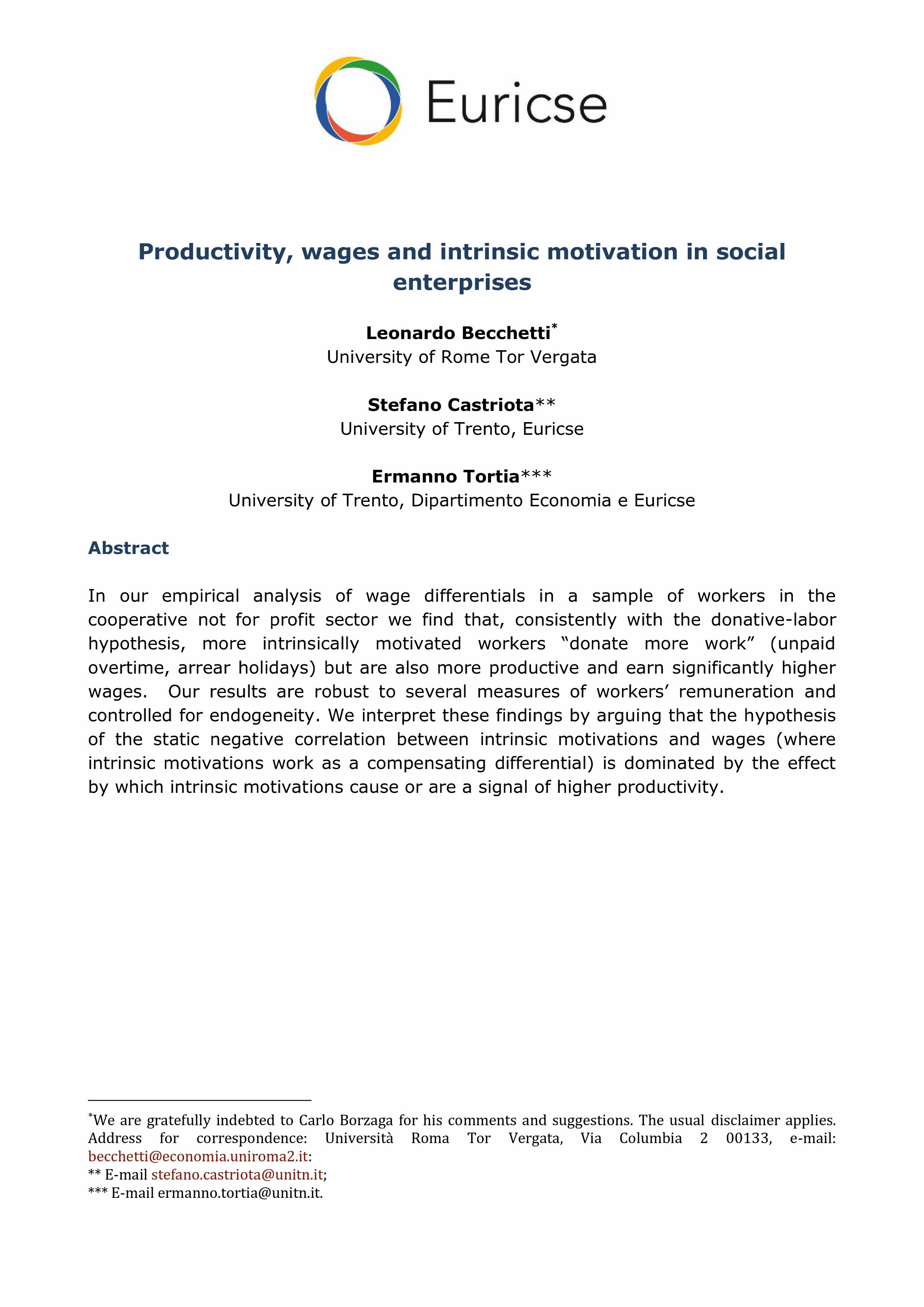Productivity, wages and intrinsic motivation in social enterprises
The aim of the report is to examine the donative labor hypothesis and its relationship with wage differentials within the nonprofit cooperative sector. Through empirical analysis, the goal is to assess whether workers with intrinsic motivations contribute more unpaid labor but are also more productive and earn significantly higher wages.
The objective is to understand whether the static relationship posited by the compensating wage differential hypothesis, indicating a negative correlation between intrinsic motivations and wages, is stronger or weaker than the dynamic hypothesis, suggesting that intrinsically motivated workers are more productive and therefore earn more. By analyzing data collected within the cooperative sector in Italy, the aim is to provide a clearer understanding of the dynamic between intrinsic motivations and wage compensation, considering the potential heterogeneity of intrinsic motivations among workers.

